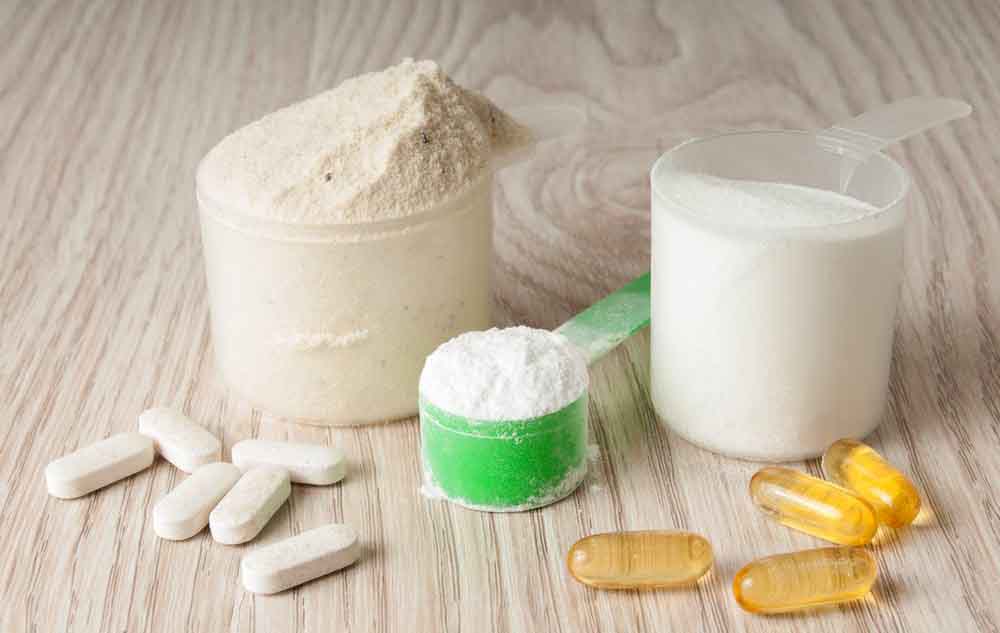Contents:
- Medical Video: 💪Doctor Reveals The Only 4 Ways To Build Muscle by Dr Sam Robbins
- How can muscles "remember"?
- How to work muscle memory
- 1. Sports creates the nucleus which leads to muscle growth
- 2. Decreasing / stopping the sport leads to atrophy, but the nucleus remains
- 3. When the sport continues, the nucleus is ready and ready
- Why do many say that the nucleus disappears when the muscle decreases?
Medical Video: 💪Doctor Reveals The Only 4 Ways To Build Muscle by Dr Sam Robbins
Muscle memory or muscle memory is a phenomenon when the muscles in your body remember what you have done to them. For example, you have undergone weight training for a long time, but for some reason you stop doing it for 3-6 months. That causes you to lose the energy and muscle that you have been building. However, when you start training again, you can restore lost muscles in just a few weeks, as if the muscle is remembering what you left behind.
Many people believe that muscle memory mostly caused by the mechanism of the nervous system. The nervous system mechanism can explain increased strength, but does not explain how one can regain muscle size quickly.
How can muscles "remember"?
Unlike other cells, muscle cells have more than one nucleus (cell nucleus) and maybe thousands. The nucleus functions as a cell controller (which allows for rapid, stimulating, and coordinated muscle growth, and improves muscle tissue), and because your muscles have very many cells and are more complex than other cells in the body, one or only two nuclei cannot do their job.
When you have bigger muscles, you also have to add lots of nuclei. Increased nucleus with muscle growth has been shown in several studies. It has been proven that people who take steroids and who grow muscles easily have more than normal muscle nuclei.
We believe that when the muscles shrink, the nucleus will also disappear. However, recently, studies using various animal models have shown that muscle atrophy or shrinkage is inactive for up to 3 months, so we don't lose the nucleus as imagined.
Because muscles have the same number of nuclei even though you have stopped practicing, you will easily build muscle back to its previous size. So, this nucleus seems to act as a 'memory cell'. They know how much muscle you have before you stop exercising.
How to work muscle memory
This is what actually happens during the sports cycle, decrease / stop sports, and exercise again:
1. Sports creates the nucleus which leads to muscle growth
When a muscle is overloaded due to exercise resistance, a new nucleus will be obtained. Further exercise (along with the right diet) allows the nucleus to synthesize muscle proteins that make muscle fibers bigger and stronger.
2. Decreasing / stopping the sport leads to atrophy, but the nucleus remains
During the period of decline, the muscles survive against atrophy due to the presence of the nucleus. And even if the period of decline in this exercise continues, the nucleus will not disappear even though the satellite cells will disappear and cause the muscles to become small.
3. When the sport continues, the nucleus is ready and ready
This is why after a period of decline, muscles that have previously been trained will develop more rapidly when the training continues. The hardest part of muscle growth (forming a new nucleus) has been done, and the nucleus can immediately carry out its action and begin synthesizing proteins.
Why do many say that the nucleus disappears when the muscle decreases?
That is because in previous studies, they calculated the nucleus that belongs to connective tissue and other cells (satellite cells). And the nucleus does indeed disappear or die due to lack of exercise. The study had a mistake about the muscle nucleus which was thought to die together with muscle loss. In fact, the nucleus they studied was not the actual muscle nucleus.
Compared to the old research, new research uses different techniques to study the nucleus. The new study only calculates the actual nucleus and we can see that the number of nuclei has not diminished.
READ ALSO:
- 6 Ways to Strengthen Knee Ligament Muscles After Injury
- List of Foods to Help Build Muscles
- 8 mistakes that are often made in forming a Sixpack Stomach












